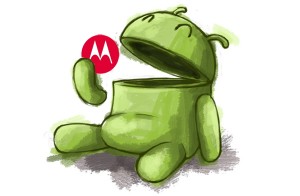Google has finally closed its acquisition of Motorola Mobility and will now start working on new devices while keeping Android open, it announced yesterday.
It has been about nine months since Google announced it planned to acquire Motorola Mobility for approximately US$12.5 billion. Google was finally able to close the deal after Chinese regulatory authorities approved the deal on Saturday.
The aim is now simple: to focus Motorola Mobility’s on fewer, bigger bets, and create devices that are used by people around the world, according to a statement.
The deal means Google now has a hardware manufacturer to work with closely on the development of Android devices. But it also puts Google in what many see as the awkward position of competing with other hardware vendors who license the Android OS.
 Motorola Mobility will remain a licensee of Android and Android will remain open, and Google it as a separate business, Google underlined.
Motorola Mobility will remain a licensee of Android and Android will remain open, and Google it as a separate business, Google underlined.
“Google has been very clear that it is a separate business unit. There is no question that Motorola Mobility’s is going to be the flag bearer Google’s innovation,” said Ben Wood, director of research at CCS Insight.
Google’s Nexus phones have come with the latest version of Android and nothing else, while partners such as Samsung and HTC add their own user interface on top.
Right now Google also needs to provide a clear strategic update on the business, according to Wood.
“As we have seen across the mobile phone ecosystem is that you are only as good as the last product you delivered. Motorola quickly needs flagship products that can compete with the [Samsung] Galaxy S II HTC One X,” said Wood.
Google didn’t elaborate on how it plans to use Motorola’s patent portfolio, which was highlighted as one of the reasons for buying the company. Previously Google has stated that the company “reserves its rights to use any and all judicial remedies against counterparties that refuse a RAND license.”
Motorola Mobility’s now former CEO Sanjay Jha will be working to ensure a smooth transition, according to the statement.
The new CEO Dennis Woodside is a long time Google employee. One of his first jobs was to build Google’s businesses across the Middle East, Africa, Eastern Europe and Russia, and more recently Woodside served as President of the Americas region.
He has already hired executives who have worked at DARPA, Amazon and Nvidia to help Motorola boost its sales.
During the first quarter, Motorola Mobility was the eighth largest phone maker in the world counting units sold to end users with a 2 percent market share, according to Gartner.
At the same time, Android grew its smartphone market share to 56.1 percent, thanks to Samsung Electronics, whose sales represent more than 40 percent of all Android-based smartphones, according to Gartner No other vendors achieved more than 10 percent, it said.





